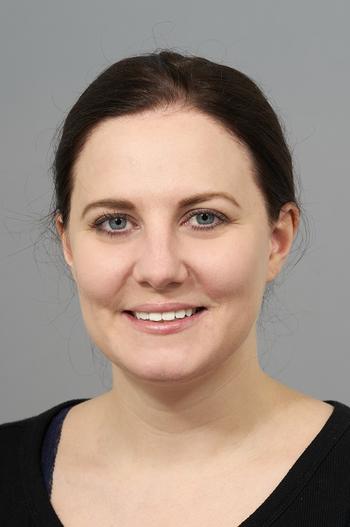M.A. Valery J. Schlegel

Institut für Vorderasiatische Archäologie
Arbeitsbereich Prof. Dr. Elisa Roßberger
Wissenschaftliche Mitarbeiterin
Raum 0.1057
14195 Berlin
Sprechstunde
Donnerstag, 10-12 Uhr (bitte Voranmeldung per E-Mail)
Zur Person
Curriculum Vitae
Akademische Ausbildung
Seit 2022 Promotion in Vorderasiatischer Archäologie an der Freien Universität Berlin
2020 Dual Master in Classical Archaeology and History, Universität Zürich (summa cum laude)
2019 SEMP Austausch in Near Eastern Archaeology, Universität Leiden, Niederlande
2017 Bachelor in Classical Archaeology, Ancient History and Photography
Berufliche Tätigkeit
Seit 2023 Wissenschaftliche Mitarbeiterin am Institut für Vorderasiatische Archäologie der Freien Universität Berlin, Arbeitsbereich Prof. Dr. Elisa Roßberger
2021 Sprachlehrerin an der ILS-Zürich für Deutsch, Englisch und Französisch
2016-2019 Tutorin diverser Kurse in Archäologie und Geschichte, Universität Zürich
Archäologische Ausgrabungen
2025 Schnittleitung WS-g64, Wadi Saq, Saudi Arabien
2022 Schnittleitung Areal B, Tell Ushayer, Jordanien
2021 Co-Leitung der Seetal-Ausgrabung, Kempraten, Schweiz
2017 & 2018 Schnittleitung Agora, Monte Iato, Sizilien
2015-2018 Diverse Ausgrabungen in Kempraten, Schweiz
SS 2025: Seminar
König der Könige, König der Länder: Die Achämeniden (BA Altertumswissenschaften | Vorderasiatische Archäologie)
WS 24/25: Kolloquium International Perspectives (with Copenhagen)
Exploring Identity in Archaeology and Archaeological Material (MA Archaeologies of the Ancient World / MA Altvorderasien)
SS 2024: Methodenübung
Stories of Life and Death. Storytelling as a Method in Near Eastern Mortuary Archaeology (MA Archaeologies of the Ancient World / MA Altvorderasien)
WS 23/24: Seminar
Ideologie, Identität und Gender in neuassyrischer Zeit (BA Altertumswissenschaften | Vorderasiatische Archäologie)
SS 2023: Seminar
Gender Archaeology: Frauen und das dritte Geschlecht im Antiken Westasien (BA Altertumswissenschaften | Vorderasiatische Archäologie)
Forschung
Forschungsschwerpunkte
Archäologie und Geschichte Mesopotamiens im 1. Jt. v. u. Z., Gender Archaeology & Identity Theory, Mortuary Archeology, Digital Archaeology
PhD Project: Mortuary Archaeology and Identity. Communal and Individual Identity in Neo-Assyrian Funerary Cult and the Identities of the Nimrud Queens
Mitarbeit am Digital Storytelling Projekt von Prof. Roßberger: Dinge mit Geschichte(n). Synergien zwischen universitärer Lehre, Wissenschaftskommunikation und musealer Öffentlichkeitsarbeit durch Digital Storytelling.
Dissertationsprojekt:
The Neo-Assyrian Empire (912-612 BC) denotes a period of territorial expansion and thus an amalgamation of different cultural identities. Out of this, a Neo-Assyrian identity evolved during the 8th century BC defined by a common language, a highest god and king as well as civil rights and duties according to the written sources. But how was communal and individual identity expressed and performed through material culture? The dissertation examines this question through burials from about two dozen Neo-Assyrian sites since funerals are an exemplary platform to negotiate identity as an intricate nexus of intertwined identity traits such as age, gender, kinship and social stratification. The identity of the dead was interpreted and distorted by the living kin responsible for the entombment to reevaluate the values and structure of the respective society itself. This means that not only the identity of the dead but the identity of the community is present in burials. Through the compilation of the burials’ characteristics such as architecture, location, and grave good assemblages into a database a qualitative, contextual and comparative analysis will offer a unique insight into the self-perception of individual and communal Neo-Assyrian identity.
Beiträge an Tagungen
70th Rencontre Assyriologique Internationale 7.-11. Juni 2025: Feeding the Dead. The Archaeological Materiality of kispu(m) in Neo-Assyrian Burials
14th ICAANE 2.-6. Juni 2025: To be or not to be (buried) an Assyrian: Communal and Individual Identity in Neo-Assyrian Burials
6th GeMANE 8. - 11. April 2024: Beards Maketh Man, no Beards Maketh ša rēši? Depictions of the Beardless and the "Eunuch" in Neo-Assyria and Why Tomb 1 of Nimrud has Nothing to Do with it
EAA Belfast 30. Aug. - 2. Sep 2023: Facing the Gordion Knot of Identity: Intersectionality and Relativized Representation of Identity in Mortuary Archaeology
15th Melammu Konferenz Graz 21. – 24. September 2022: Pazuzu & Bes: How the Woman of Tomb I at Nimrud Sheds New Light on the Conflicts between Assyria and Egypt
EAA Budapest 31. Aug. – 3. Sep. 2022: Non Aequat omnis Cinis – Obsolete and New Approaches on Gender in Mortuary Archaeology
EAA Kiel 8. – 11. September 2021: Clamour from the Mediterranean to the Persian Gulf. Revised Dating and Distribution Patterns of Engraved Tridacna squamosa
ICAANE Bologna 6. – 11. April 2021: An Interdisciplinary Approach to Timber Resources in the ANE and their Impact on Royal Architecture in the First Millennium BC
SAFT März 2019, Archäologien 2020! Forschungstagung aller Archäologiestudierenden der Universität Zürich: Ecological Motives behind the Choice of Wood Types and their Provenance for Neo-Assyrian Timber. An Interdisciplinary Approach with archaeological, historical and palynological data based on a Case Study of Palace Doors at Nimrud, Balawat and Khorsabad.
Publikationen
Dominik Bonatz, Nathalie Kallas, Yvonne Helmholz, Laith Alshboul, Stefano Aprà, Valery Schlegel, Giampiero Tursi, Marina Weiss. (Forthcoming 2025). "Excavations at Tell Ushayer: A Preliminary Report on the 2021, 2022 And 2023 Seasons". ADAJ 62 (in print preparation).
Disentangling the Inseparable: Intersectionality, Gender and the Relativized Representation of Identity in Mortuary Archaeology, British Archaeology (in print preparation).
Pazuzu & Bes: How the Woman of Tomb I at Nimrud Sheds New Light on the Conflicts between Assyria and Egypt, Proceedings of the 15th Melammu Konferenz Graz 21. – 24. September 2022 (in print preparation).
Clamour from the Mediterranean to the Persian Gulf. Revised Dating and Distribution Patterns of Engraved Tridacna squamosa in: L. Recht / Ch. Tsouparopoulou, Human and Aquatic Beings: Interactions in and beyond the Eastern Mediterranean (3rd-1st Millennia BCE), Themes in Contemporary Archaeology 4, 2025. https://link.springer.com/book/9783031736421
An Interdisciplinary Approach to Timber Resources in the ANE and their Impact on Royal Architecture in the First Millennium BC, Proceedings of the 12th International Congress on the Archaeology of the Ancient Near East in Bologna, 2023, 149-159. https://doi.org/10.13173/9783447118736
Ecological Motives Behind the Choice of Wood Types in the Neo-Assyrian Empire. A Case Study of Palace Doors at Nimrud, Balawat and Khorsabad, in: D. A. Baumgartner / A. Guirard / J. Held / M. Mohr (ed.), Archäologien 2020! Studentische Archäologische Forschungstagung (SAFT) Universität Zürich, 16. März 2019. BOTHROS Zürcher Hefte für Archäologie 1, Zürich 2023, 87-97. https://www.hope.uzh.ch/bothros/article/view/4154/3006

